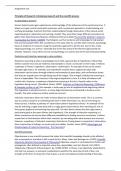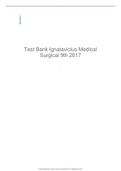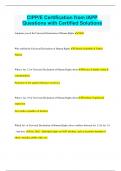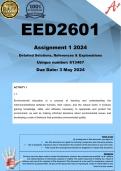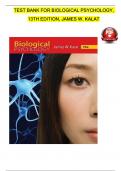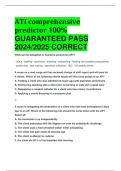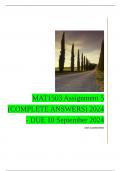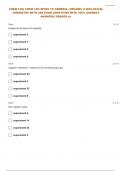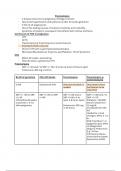Other
Psychology Assignment 1 - Conducting Psychological Research - Unit 2
- Institution
- PEARSON (PEARSON)
This is assignment I wrote for Unit 2 Applied Psychology Coursework (Part 1) that achieved a Distinction mark (70/70). Overall, for Applied Psychology I achieved a Distinction. This can be used as a guidance for writing your own coursework. DISCLAIMER/WARNING : you may be disqualified from the e...
[Show more]
